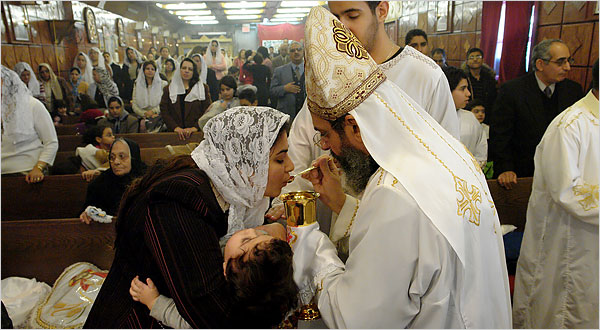
The idea that Christians do not need the Church and can find spiritual life and sure guidance without membership of any organised community of believers is a very recent but certainly popular one. It is the end point of the development of the Protestant doctrine of sola scriptura, which established the personal interpretation and opinion of each individual as the sole and supreme authority for faith and practice.
During the first centuries of the Protestant movement it was still the case that various leaders and denominations had the authority to demand the loyalty of their members. People were convinced of the doctrines of the Baptists and so became Baptists. They were convinced of the doctrines of the Methodists and so became Methodists. There were clear differences in these and the other Protestant groups and believers would choose which teachings they were best convinced by.
There was certainly a degree of individualism, as members could move from one Protestant group to another. But it is in the last century, and especially since the 1960s, that the individualism which has dominated secular society has borne fruit in the Protestant Churches, so that many Protestants now believe that there is no authority at all over them, and no requirement to believe and practice anything other than those things their own opinions and understanding lead them to.
It is in such a context that the Church itself is rejected as no longer being necessary. To speak of the Church is to describe an authority other than personal opinion. Even to speak of Protestant Churches is to refer to a set of doctrines, and to a leadership structure, and to an authority and tradition that must be received. But for many modern Protestants, brought up in a society where the only goal is self-satisfaction and the only rule is that of self-will, this is not acceptable at all.
But to reject the Church, even in its weakest Protestant form, is to cease to be Christian. Christ himself says…. I will build my Church, and the gates of Hades shall not prevail against it. What is this Church? It is certainly not all those individuals who choose to believe whatever they choose. We know that the promise that the …. Spirit of Truth will guide you into all truth… is made to the Apostles in the first instance, and not to everyone who calls themselves a Christian.
And these Apostles, promised the Spirit of Truth, made disciples of others, who followed their truth-filled teachings. In the Acts of the Apostles, we find every reference to the Church is to a coherent community of believers and not to individuals. It says, for instance of St Paul after his conversion… he brought him to Antioch, and for a whole year he assembled with the Church.
What was this Apostolic Church like? It was not a group of individuals respecting no authority but their own opinion. It was a Church under presbyters and bishops. In the Acts we find it written… Paul and Barnabas ordained presbyters in every Church. And writing to Titus, St Paul speaks of his authority and office and reminds him… A bishop must be blameless, as the steward of God.
This Apostolic Church, formed by the Apostles under the inspiration of the Spirit of Truth, was always a coherent community of people, under the leadership of the Apostles, and then the bishops and presbyters they ordained to succeed them. Just a short reference from one of the earliest of these bishops, St Ignatius of Antioch, a disciple of St Peter and St Paul, and made bishop of Antioch in 67 AD by the Apostles, describes the Church, saying…
For when you are obedient to the bishop as to Jesus Christ, it is evident to me that you are living not after men but after Jesus Christ, who died for us…It is therefore necessary, even as your practice is, that you should do nothing without the bishop; but be obedient also to the presbytery, as to the Apostles of Jesus Christ our hope.
What shall we say. There is no knowledge of a Church made up of individuals who do as they choose, and much less individuals who reject the Church. The Church is established by the Holy Spirit through the Apostles as a coherent community of believers under the leadership and authority of bishops and presbyters. And in the earliest Church we see this same pattern.
If we are separated from this Church, through misunderstanding or wilful disobedience, then we separate ourselves from the Church of Christ, for there is none other than that Church which Christ established by his own disciples, pouring out his Spirit on them for that purpose. It is most certainly necessary to be a member of the Church, the visible community of Christ, and to humbly submit to the teachings of the Church through her leaders and pastors. To set ourselves up as the ultimate arbiter of truth is attractive in this modern age, but it is not Christian at all, it is a very modern error, and it leads only to disappointment and delusion.
If you find this material interesting and helpful then please purchase one of the eBooks published by Father Peter Farrington and available for immediate download from most locations at:-
